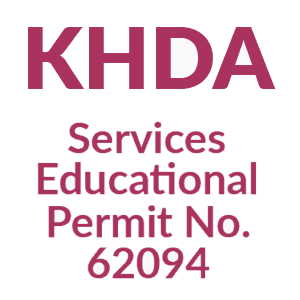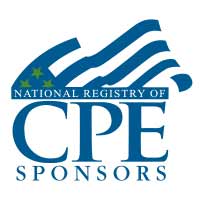Classroom Sessions:
| Date | Venue | Fees | |
|---|---|---|---|
| 23 - 27 Sep 2024 | Dubai - UAE | $5,950 | |
| 17 - 21 Feb 2025 | London - UK | $5,950 |
INTRODUCTION
Risk and insurance aspects are components spelt out in energy project contract documents. In most energy projects, the contracts will carry specific clauses that spell out the need for insurances to be arranged for the project, equipment, and protection against third-party claims. Indemnity must be procured to protect the employer or client. Often the requirements of the necessary insurances are recorded in the Joint Operating Agreement (JOA) involving oil drilling activities. The projects can range from oil and gas exploration work, drilling activities, platform installation, and power generation schemes. These can be onshore or offshore; renewable energy projects like wind power units and solar farms are new developments that are already being implemented in various regions.
There are various risk aspects involved in an energy project implementation - some of these issues can be identified and managed, operational cover for energy production plants will also be addressed. Insurance is arranged to act as a risk transfer mechanism. Risk management can be used to reduce specific exposures on an energy project site, including perils like fire, explosion, collapse and even “design defects” or material/workmanship shortcomings. The basic principles of insurance will be addressed in this training course.
This GLOMACS Understanding Energy Insurance training course will highlight:
- The types of oil and gas risks and differences between erection / operational exposure
- Renewable energy and energy current industry trends
- How insurance is a risk transfer mechanism in energy project sectors
- The principles of insurance: What are they and appropriate examples
- The identification of trade risks
- Underwriting / Undercutting
Objectives
By attending this training course, the delegates will be able to make a substantial, positive impact on the learning best practices within their organisation, more specifically:
- Learn how insurance coverage for energy schemes are arranged and underwritten
- Know the concerns of the underwriter when considering various energy-related risks
- Consider risk management steps during the project implementation stage and beyond
- Appreciate how the risk transfer process takes place
- Highlight the key points of the different insurance policies and how they are triggered
- Discuss and expand the practical application of these industry best practices
Training Methodology
This Understanding Energy Insurance training course will utilise a variety of proven adult learning techniques to ensure maximum understanding, comprehension, and retention of the information presented during the five days. It will employ active-learning techniques, group discussion, and quizzes to enhance the training course session. The delegates will also be provided with a few challenging case studies with actual energy project scenarios – and the facilitator will guide them through achieving appropriate and practical solutions. A proper understanding of the coverage provided under the various energy operational risks wording is essential to appreciate this subject.
Meanwhile, the delegates are also urged to raise their own experiences in dealing with energy projects, site work and design experiences to the class for further review and group discussion. The class sharing and group deliberation will make this an exciting learning procedure.
Organisational Impact
Upon the completion of the training course, the organization would benefit from:
- A better management of insurance procurement & coverage for their risks
- Know the validity of insurance coverage are more accurately secured
- Better role and support underwriters’ expectations
- Better risk management themes, when implemented at the site, will bring about a safer operational risk
- Knowing the overall savings in terms of premium reductions can be secured in the upcoming policy renewals
- A more professional approach in handling and follow-up of claims
Personal Impact
On successful completion of this training course, the delegate will be able to:
- Understand the risk and insurance subject better
- Manage to coordinate better with the stakeholders on-site and client representatives
- Communicate better with the insurance personalities like insurers, brokers, and reinsurers
- Have clarity about risk management procedures on site
- Comprehend the world of insurance is an asset to the individual in the energy industry
WHO SHOULD ATTEND?
This GLOMACS training course is suitable for a wide range of professionals involved in any aspect of Energy Risks (Construction, Erection, and Operational aspects) and who want to understand, implement, and improve the latest energy insurance coverages formats & wordings.
Ideally for Senior Executives, Senior Engineers, and Managers from the following industries:
- Energy & Power Industry: Plant Operators, Suppliers, and Specialist Equipment Vendors
- Government Officials, Ministries, Public Sector Agencies, Regulators
- Government Entities and Institutions: Public Works, Local Council, and Energy Authorities
- Banks, Financial Institutions & Fund Managers
- Buyers of Insurance: Contractors, Builders, and Sub-Contractors
- Oil and Gas Project Consultants, Architects, Design Specialists, Land Surveyors, and Quantity Surveyors
- Insurance, Reinsurance Companies, Insurance Brokers, and Reinsurance Brokers
- Insurance Regulators, Legal Personnel, Arbitrators, and Loss Adjusters
DAY 1
Overview of the Energy Industry and Insurance Aspects
- Types of oil and gas risks and differences between erection/operational exposure
- Renewable energy and current trends in the industry
- World oil economics and shale gas as an alternative energy source
- Coal-fired & gas turbine plants
- Offshore risks and marine-related issues
- Explore the coverage provided by the various insurance covers
DAY 2
Understanding Energy Projects – Application of Construction and Erection Insurances
- Principles of insurance: What are they and appropriate examples?
- CAR or EAR: What are the differences?
- Discuss and identify trade risks
- Is it underwriting or just undercutting?
- How to affect the risk transfer mechanism?
- Challenges when there is an incident at an energy project site
DAY 3
Appreciating the Wordings Under Section I And II in the Policy
- Material damage and third-party liability aspects
- What are the concerns of the risk surveyor?
- Investigation - Why is the cause of failure very crucial?
- Role of the loss adjuster or loss assessor
- Dealing with third-party damage claims
- What is physical damage?
DAY 4
Operational Risks in the Energy Sector
- Property insurance: IAR/Fire policy coverage
- Offshore operating risks
- Business interruption insurance
- Third-party insurance: General & pollution liability
- Operator’s extra expenses insurance
- Offshore construction risks
- Considering the package policy
DAY 5
Handling Claims, Risk Management, and Recoveries
- Recovery (subrogation) is undertaken after the insurance company pays a claim
- How is loss adjustment undertaken?
- Application of policy excess or deductible
- Why is risk management critical in energy projects?
- Involvement in energy risks: Collapse, fire, explosion etc.
- On successful completion of this training course, GLOMACS Certificate will be awarded to the delegates
- Continuing Professional Education credits (CPE) : In accordance with the standards of the National Registry of CPE Sponsor, one CPE credit is granted per 50 minutes of attendance
Endorsed Education Provider
GLOMACS is registered with the National Association of State Boards of Accountancy (NASBA) as a sponsor of continuing professional education on the National Registry of CPE Sponsors. State boards of accountancy have final authority on the acceptance of individual courses for CPE credit. Complaints regarding registered sponsors may be submitted to the National Registry of CPE Sponsors through its website: www.NASBARegistry.org
In Association With

The Energy Training Centre
Our collaboration with Energy Training Centre aims to provide the best training services and benefits for our valued clients



